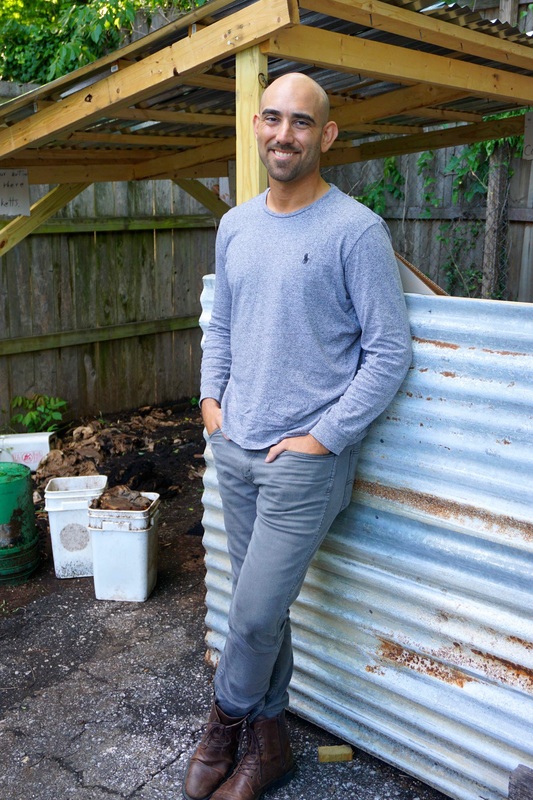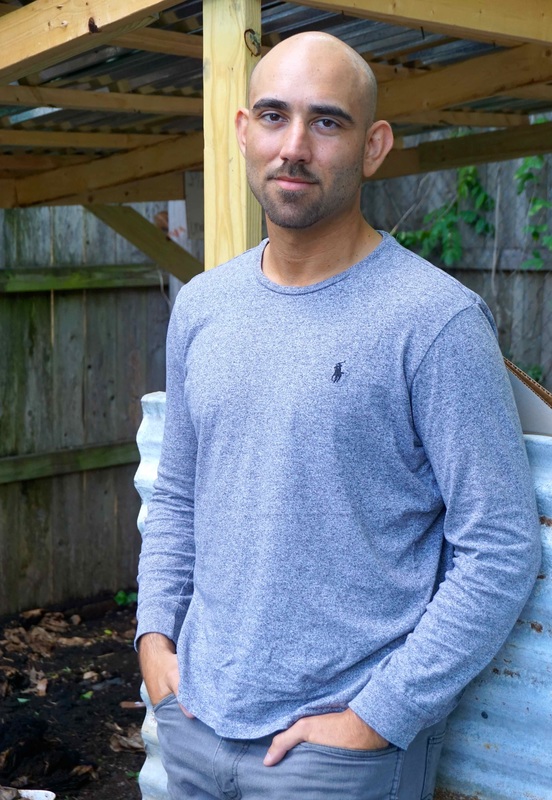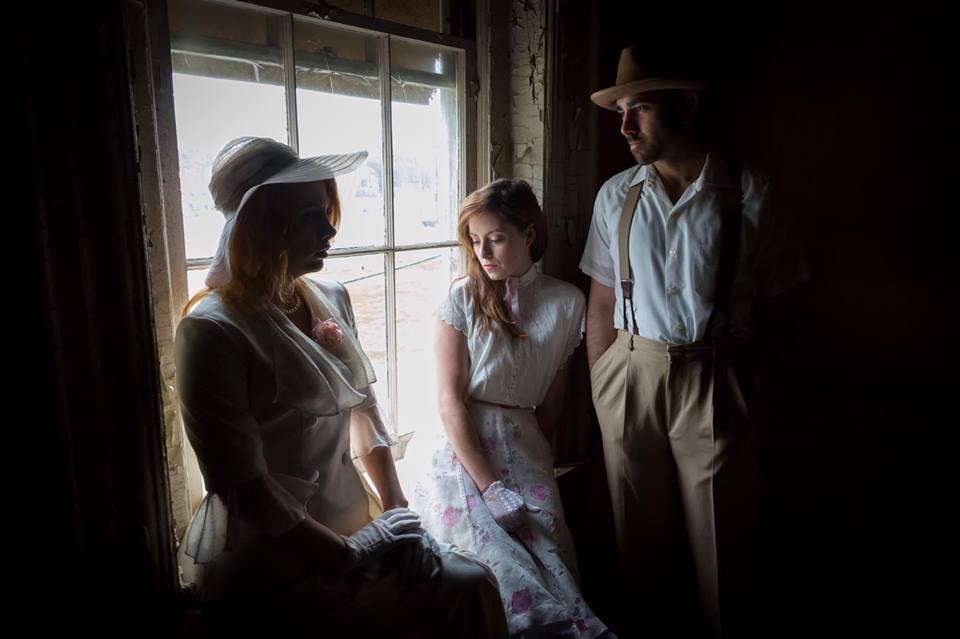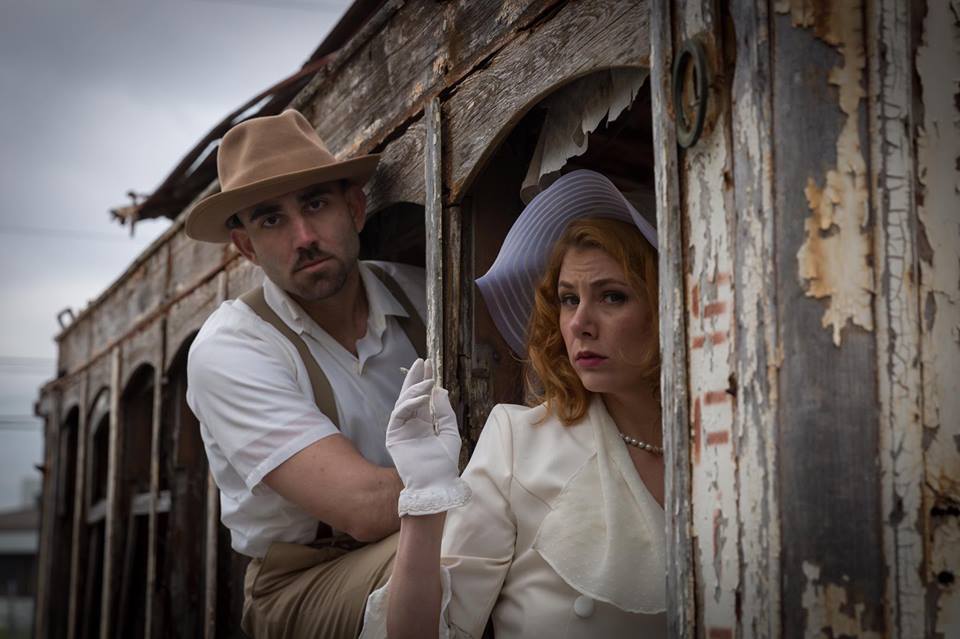“My grandparents were Holocaust survivors, and I firmly believe they passed those traumatic experiences down to us through our culture and bloodline. They had to shut themselves down emotionally in order to survive, but I often wish our family could have been more open with each other. Even now, I wish we could say how we really feel, but it’s gotten to the point where I just have to let some things be. It makes me sad and angry sometimes to think about the closeness we’ve missed. I remember as a small boy, there was a traumatic event in our family and I cried. I was told to stop crying and to be a man, so I did. I haven’t cried in years. There are times when I want to, but then something inside of me says, ‘No Greg. No, you cannot do that.’ It’s ironic, really, because as an actor, it's necessary for me to be vulnerable and emotionally available in the characters I’m portraying. Stella Adler, a prominent acting teacher in the early 20th century, said something along the lines of, ‘An actor, an artist, has a broken heart. They always carry it with them.’ I think that’s true. For the longest time, until I ran across those words, I asked myself, ‘Why do I feel this slight bit of emptiness, this sadness that’s always with me even when I’m happy, even when I’m experiencing a moment of joy? Is a part of me always going to feel discontent? Is there never going to be a day when I wake up and breathe easily and everything is just great?’ When I read what Adler said, I realized the answer was ‘No.’ And that’s okay. I need the good and the bad. I need to be able to experience these sad feelings and this discomfort because it helps me. I think a broken heart is a necessity. I may be happy, but at the same time, right underneath it, the sadness is always there. As I interpret a character, I bring all those experiences with me, and hopefully they help me create a more authentic experience.
“You can’t touch everyone, but once I come up with something, once I create something, it’s for me to give away. It’s not about what any particular reviewer thinks. I once told a woman I was in a show with: ‘I wish I could reach everybody,’ and she said: ‘Greg, Baskin-Robbins has 31 flavors. Everyone has different tastes. If you go out there and one person gets something from what you did, you’ve done your job.’ Hopefully, I touch at least some of the people who are sitting in those seats and they respond with: ‘I understand where you’re coming from. I know what that feels like. God, I know what that feeling is.’ I still battle when I try to play certain emotions, but I’m learning how to use even the painful experiences in my family to grow in my craft.
“Expressing emotions in such an intense way can be very draining. I played Stanley in a recent production of ‘A Streetcar Named Desire’ and it was a difficult role because I do things in the play that I would never do in real life: curse, hit a woman, rape a woman. There were times that I couldn’t have an ordinary conversation with friends or audience members after the performances. I just slipped out the back door and left. I was so depleted that I just couldn’t talk to anyone. It took a while to get back to being myself. But theater is what I love. This has always been my niche, the way I give back to the world.”
“You can’t touch everyone, but once I come up with something, once I create something, it’s for me to give away. It’s not about what any particular reviewer thinks. I once told a woman I was in a show with: ‘I wish I could reach everybody,’ and she said: ‘Greg, Baskin-Robbins has 31 flavors. Everyone has different tastes. If you go out there and one person gets something from what you did, you’ve done your job.’ Hopefully, I touch at least some of the people who are sitting in those seats and they respond with: ‘I understand where you’re coming from. I know what that feels like. God, I know what that feeling is.’ I still battle when I try to play certain emotions, but I’m learning how to use even the painful experiences in my family to grow in my craft.
“Expressing emotions in such an intense way can be very draining. I played Stanley in a recent production of ‘A Streetcar Named Desire’ and it was a difficult role because I do things in the play that I would never do in real life: curse, hit a woman, rape a woman. There were times that I couldn’t have an ordinary conversation with friends or audience members after the performances. I just slipped out the back door and left. I was so depleted that I just couldn’t talk to anyone. It took a while to get back to being myself. But theater is what I love. This has always been my niche, the way I give back to the world.”
"My grandfather was a remarkable man. Looking at him, you would never know that he had gone through what he went through. He was one of the most incredible human beings I’ve ever come across. I try to live my life on a basic principle he taught me. The last thing he ever said to me was very profound. I’ve never forgotten it. He said: 'Always treat people well because you never know what kind of day they’re having.' I can’t live up to that. I still haven’t lived up to that. It’s a hard thing to do, but I try. I try very hard."
Photos below courtesy of Germantown Community Theater
Gregory Alexander Szatkowski's latest role (as of April/May 2016) was Stanley in the Tennessee Williams play A Streetcar Named Desire, performed at the Germantown Community Theater, 3037 Forest Hill Irene Rd., Germantown.





 RSS Feed
RSS Feed